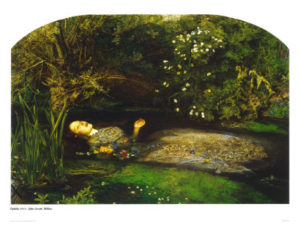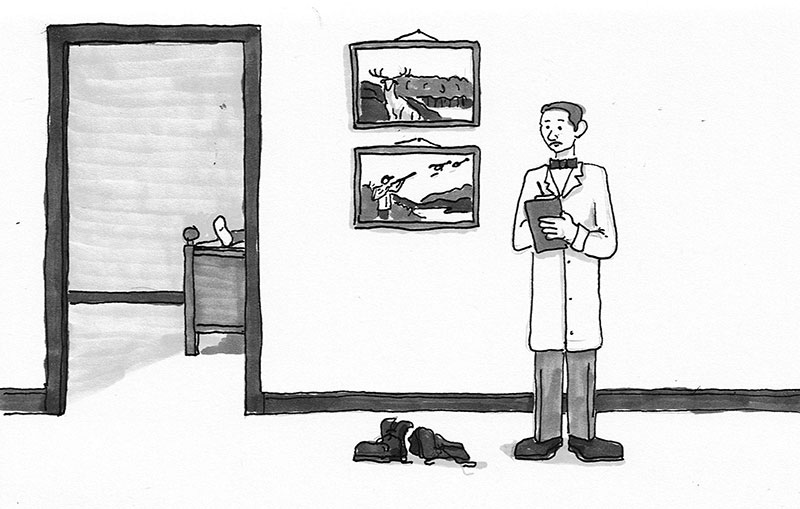—In the midst of life, Martin Cunningham said.
—But the worst of all, Mr Power said, is the man who takes his own life.
Martin Cunningham drew out his watch briskly, coughed and put it back.
—The greatest disgrace to have in the family, Mr Power added.
—Temporary insanity, of course, Martin Cunningham said decisively. We must take a charitable view of it.
—They say a man who does it is a coward, Mr Dedalus said.
—It is not for us to judge, Martin Cunningham said.
Mr Bloom, about to speak, closed his lips again. Martin Cunningham’s large eyes. Looking away now. Sympathetic human man he is. Intelligent. Like Shakespeare’s face. Always a good word to say. They have no mercy on that here or infanticide. Refuse christian burial. They used to drive a stake of wood through his heart in the grave. As if it wasn’t broken already. Yet sometimes they repent too late. Found in the riverbed clutching rushes. He looked at me. And that awful drunkard of a wife of his. Setting up house for her time after time and then pawning the furniture on him every Saturday almost. Leading him the life of the damned. Wear the heart out of a stone, that. Monday morning. Start afresh. Shoulder to the wheel. Lord, she must have looked a sight that night Dedalus told me he was in there. Drunk about the place and capering with Martin’s umbrella.
And they call me the jewel of Asia, Of Asia, The geisha.He looked away from me. He knows. Rattle his bones.
That afternoon of the inquest. The redlabelled bottle on the table. The room in the hotel with hunting pictures. Stuffy it was. Sunlight through the slats of the Venetian blind. The coroner’s sunlit ears, big and hairy. Boots giving evidence. Thought he was asleep first. Then saw like yellow streaks on his face. Had slipped down to the foot of the bed. Verdict: overdose. Death by misadventure. The letter. For my son Leopold.
No more pain. Wake no more. Nobody owns.
annotation:
This passage deals directly with the concept of Hell and Bloom’s isolation from the group. It doesn’t seem that the other carriage members are intentionally picking on him when they are conversing about suicide. This is evidenced when Mr. Cunningham realizes that the conversations is making Bloom uncomfortable and says “Temporary insanity, of course, We must take a charitable view of it.”
 I appreciate the reference to the suicide in Shakespeare’s Hamlet. The line “Found in the riverbed clutching rushes” made me immediately think of the Pre-Raphaelite painting Ophelia by John Everett Millais.
I appreciate the reference to the suicide in Shakespeare’s Hamlet. The line “Found in the riverbed clutching rushes” made me immediately think of the Pre-Raphaelite painting Ophelia by John Everett Millais.

